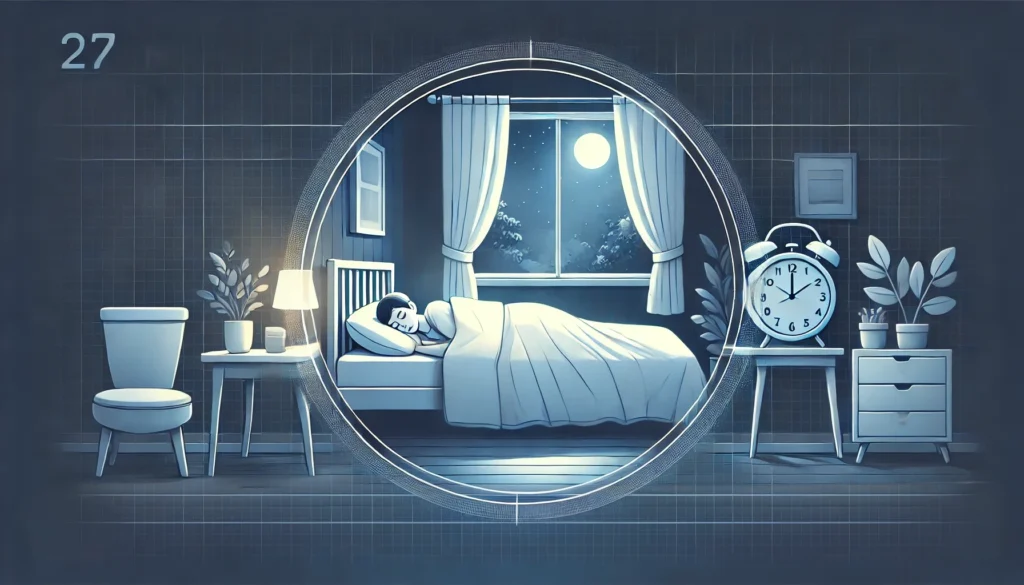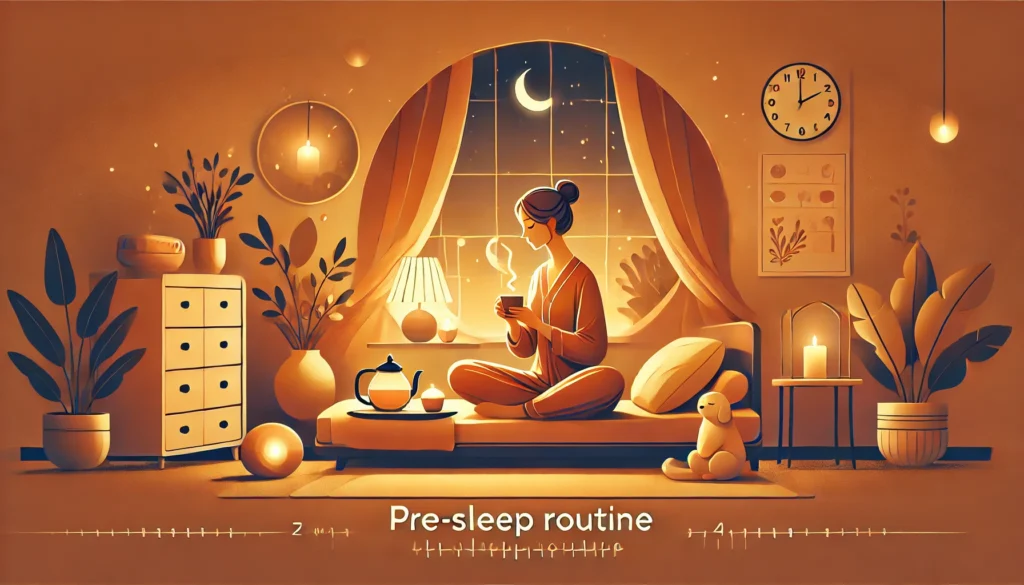Getting a good night’s sleep is often underestimated in its importance for overall health and well-being. From the dawn of human civilization, our sleep patterns have evolved, shaped by cultural, environmental, and technological changes. Yet, even in modern times, many of us are guilty of having less than ideal sleep habits. This article explores common sleeping habits, their effects, and offers practical advice on how to improve sleep hygiene.
You May Also Like: Benefits of Consistent Sleep Schedules Explained
Understanding Sleep Hygiene
The term “sleep hygiene” refers to a series of practices and habits that promote consistent, uninterrupted sleep. Good sleep hygiene can mean the difference between waking up refreshed or groggy. It encompasses various factors, including bedroom environment, sleep schedule, diet, and lifestyle choices.
The Importance of a Sleep Schedule
Keeping a regular sleep schedule, including weekends, is crucial. It helps regulate your body’s internal clock, known as the circadian rhythm. Disruption of this rhythm can lead to sleep disorders, such as insomnia. Adhering to consistent bedtimes and wake times is a cornerstone of effective sleep hygiene.
Maintaining a sleep schedule involves going to bed and waking up at the same times every day, even on weekends. This consistency reinforces your body’s natural sleep-wake cycle, making it easier to fall asleep and wake up. Over time, your body will adapt to this rhythm, potentially improving the quality and duration of your sleep.
Creating a Restful Sleep Environment
Your bedroom should be a sanctuary for sleep. This means a comfortable mattress, a cool room temperature, and minimal noise and light. Investing in blackout curtains and a white noise machine can make a significant difference in sleep quality.
The ambience of your bedroom plays a crucial role in how well you sleep. A clutter-free, peaceful environment can help signal your brain that it’s time to rest. Consider using calming colors for your bedroom decor and keeping electronic devices out of sight to reduce distractions.
The Role of Diet and Exercise in Sleep Hygiene
What you eat and how you move throughout the day can significantly impact your sleep. A balanced diet, rich in essential nutrients, supports overall health, including sleep quality. Consuming foods high in magnesium and tryptophan, such as nuts and seeds, can promote relaxation and better sleep.
Regular physical activity is beneficial for sleep hygiene, as it can help you fall asleep faster and enjoy deeper sleep. However, timing is crucial; exercising too close to bedtime may have the opposite effect, leaving you too energized to fall asleep. Aim to complete your workout at least a few hours before you plan to go to bed.

Is It OK to Sleep In?
The allure of sleeping in, particularly on weekends, is strong. After a week of early alarms and late nights, the temptation to catch up on sleep is understandable. But is sleeping in really beneficial?
The Drawbacks of Sleeping In
While it might feel rejuvenating in the short term, sleeping in can disrupt your sleep schedule. This phenomenon, known as “social jetlag,” can make it harder to fall asleep at your usual time, perpetuating a cycle of sleep deprivation.
Social jetlag occurs when there is a mismatch between your biological clock and your social obligations, leading to irregular sleep patterns. This misalignment can result in feelings of fatigue and sluggishness, even if you technically get more sleep. Over time, this inconsistency can negatively affect your mood and cognitive function.
Moreover, research suggests that irregular sleep patterns may negatively impact metabolic health, potentially leading to weight gain and increased risk of chronic diseases. Consistently altering your sleep schedule can confuse your body’s internal processes, affecting everything from hormone levels to glucose metabolism.
The Middle Ground
However, this doesn’t mean you should never allow yourself extra rest. Listening to your body is crucial. If you’re genuinely sleep-deprived, a modest sleep-in can help. The key is moderation and ensuring it doesn’t become a regular habit.
To find a balance, consider limiting sleep-ins to no more than an hour past your usual wake-up time. This approach can provide the extra rest you need without significantly disrupting your sleep pattern. Additionally, focus on improving your sleep quality during the week to reduce the temptation to sleep in on weekends.
Understanding Your Sleep Cycle
Understanding your sleep cycle can help you make informed decisions about sleeping in. Your sleep cycle consists of various stages, including light sleep, deep sleep, and REM sleep, each essential for different aspects of health. Waking up during a deep sleep phase can leave you feeling groggy, even if you’ve had enough sleep overall.
Monitoring your sleep patterns using a sleep tracker or keeping a sleep diary can provide insights into your sleep quality and help you identify the best times to wake up. By aligning your sleep schedule with your natural sleep cycle, you can optimize your rest and reduce the need for extra sleep.
Is Sleeping In Bad for You?
Although occasional sleeping in isn’t inherently bad, habitual oversleeping can be a red flag. It may indicate underlying health issues such as depression, sleep apnea, or other medical conditions.
Understanding Sleep Needs
Most adults require 7-9 hours of sleep per night. Consistently exceeding this range could be detrimental. Oversleeping is associated with cognitive impairment, increased inflammation, and a higher risk of mortality.
Understanding your individual sleep needs is crucial for maintaining optimal health. Factors such as age, lifestyle, and overall health can influence how much sleep you require. While some people may feel refreshed with seven hours of sleep, others may need closer to nine. Pay attention to how you feel during the day to determine if you’re getting enough rest.
The Impact of Oversleeping on Mental Health
Oversleeping can have significant implications for mental health. It is often linked to mood disorders, such as depression and anxiety. The relationship between sleep and mental health is bidirectional, meaning poor sleep can contribute to mental health issues, and vice versa.
If you find yourself regularly oversleeping and experiencing symptoms of depression or anxiety, consider seeking professional guidance. A healthcare provider can help identify the root causes and suggest appropriate interventions to improve both your sleep and mental health.
When to Seek Help
If you find yourself needing to sleep more than the recommended amount regularly, it may be worth consulting a healthcare professional. They can determine if there is an underlying condition contributing to excessive sleepiness.
Persistent fatigue and excessive sleepiness can be symptoms of various medical conditions, including sleep apnea, hypothyroidism, or chronic fatigue syndrome. A thorough evaluation by a healthcare provider can help identify any underlying health issues and guide you toward effective treatment options.

Practical Tips for Better Sleep
Limit Stimulants
Caffeine and nicotine are stimulants that can interfere with sleep. It’s advisable to avoid these substances in the hours leading up to bedtime.
Limiting your intake of stimulants is a key aspect of improving sleep hygiene. Caffeine, found in coffee, tea, and some sodas, can linger in your system for hours, affecting your ability to fall asleep. Consider switching to decaffeinated beverages in the afternoon and evening to minimize their impact on your sleep.
Establish a Bedtime Routine
Creating a calming pre-sleep routine can signal to your brain that it’s time to wind down. This could include reading, taking a warm bath, or practicing relaxation exercises.
Establishing a bedtime routine helps create a consistent cue for your body to transition from wakefulness to sleep. Engage in calming activities, such as gentle yoga or deep breathing exercises, to reduce stress and prepare your mind for rest. Consistency in your routine reinforces the habit, making it easier to relax and fall asleep.
Mind Your Diet
Heavy meals, alcohol, and sugary snacks before bed can disrupt sleep. Opt for light, nutritious snacks if you need to eat close to bedtime.
Being mindful of your diet is crucial for maintaining good sleep hygiene. Avoid large, heavy meals within a few hours of bedtime, as they can lead to discomfort and indigestion, disrupting your sleep. Instead, choose light snacks, such as a small serving of yogurt or a banana, to satisfy any late-night hunger without compromising your rest.
Technology Detox
The blue light emitted by screens can interfere with melatonin production, the hormone responsible for sleep. Aim to disconnect from digital devices at least an hour before bed.
A technology detox before bed can significantly improve your sleep quality. The blue light from screens can suppress melatonin production, making it harder to fall asleep. Consider setting a digital curfew, where you avoid screens and engage in non-digital activities, such as reading a physical book or journaling, to help your mind unwind.
Incorporating Relaxation Techniques
Incorporating relaxation techniques into your bedtime routine can enhance your sleep hygiene. Techniques such as progressive muscle relaxation, guided imagery, or mindfulness meditation can help calm your mind and body, making it easier to drift into a restful sleep.
Experiment with different relaxation methods to find what works best for you. Some people may find that listening to calming music or nature sounds helps them relax, while others may prefer focusing on their breath. Regular practice of these techniques can improve your ability to manage stress and promote better sleep.
Historical Context and Future Implications
Sleep patterns have drastically changed over centuries. In pre-industrial times, it was common to have two distinct sleep phases—“first sleep” and “second sleep”. This biphasic pattern shifted with the advent of artificial lighting, altering how we rest.
The Evolution of Sleep Patterns
The evolution of sleep patterns reflects changes in society and technology. Before the industrial revolution, people often followed a biphasic sleep pattern, with two distinct periods of rest separated by a waking period during the night. This pattern allowed for a more flexible approach to sleep, adapting to environmental cues like natural light.
As society became more industrialized, the introduction of artificial lighting and structured work schedules led to a shift towards a monophasic sleep pattern, where people aim to get all their sleep in one continuous block. This change has had profound effects on how we approach rest and recovery.
The Impact of Modern Technology on Sleep
Modern technology has both improved and challenged our sleep habits. While advancements like electric lighting and digital devices have made life more convenient, they have also contributed to disruptions in our natural sleep patterns. The accessibility of technology and entertainment at any hour can lead to late nights and insufficient rest.
Understanding the impact of technology on sleep is crucial for developing effective sleep hygiene strategies. By being mindful of how we use technology, particularly before bed, we can mitigate its negative effects and promote healthier sleep habits.
Future Trends in Sleep Health
Looking forward, technological advancements and increasing awareness about the importance of sleep hygiene suggest a positive trend towards improved sleep health. Innovations in wearable sleep trackers and personalized sleep solutions offer hope for those struggling with sleep issues.
Emerging technologies, such as smart mattresses and sleep apps, provide real-time feedback on sleep patterns and offer personalized recommendations for improvement. As awareness of sleep’s role in overall health continues to grow, more people are likely to adopt proactive approaches to enhance their sleep quality and well-being.

Conclusion
Sleep is a fundamental component of health, yet it is often neglected. By understanding common sleep habits and their effects, you can make informed choices that enhance your sleep quality and overall well-being. Remember, good sleep hygiene is not merely about getting enough sleep; it’s about getting quality sleep.
Prioritizing your sleep health is an investment in your future. By adopting healthy sleep habits and addressing any sleep-related issues, you can improve your physical and mental health, leading to a more productive and fulfilling life. So, next time you consider hitting the snooze button, think about the long-term effects of your sleeping habits and how they align with your health goals.
By embracing the principles of good sleep hygiene, you can take control of your sleep patterns and enjoy the benefits of restful, rejuvenating sleep. Whether it’s maintaining a consistent sleep schedule, creating a calming bedtime routine, or minimizing disruptions, every step you take towards better sleep is a step towards a healthier, more vibrant you.
Further Reading:
Kids and Poor Sleep: A Habit That’s Breakable
Sleep Hygiene: Good Sleep Habits
Important Note: The information contained in this article is for general informational purposes only, and should not be construed as health or medical advice, nor is it intended to diagnose, prevent, treat, or cure any disease or health condition. Before embarking on any diet, fitness regimen, or program of nutritional supplementation, it is advisable to consult your healthcare professional in order to determine its safety and probable efficacy in terms of your individual state of health.
Regarding Nutritional Supplements Or Other Non-Prescription Health Products: If any nutritional supplements or other non-prescription health products are mentioned in the foregoing article, any claims or statements made about them have not been evaluated by the U.S. Food and Drug Administration, and such nutritional supplements or other health products are not intended to diagnose, treat, cure, or prevent any disease.


